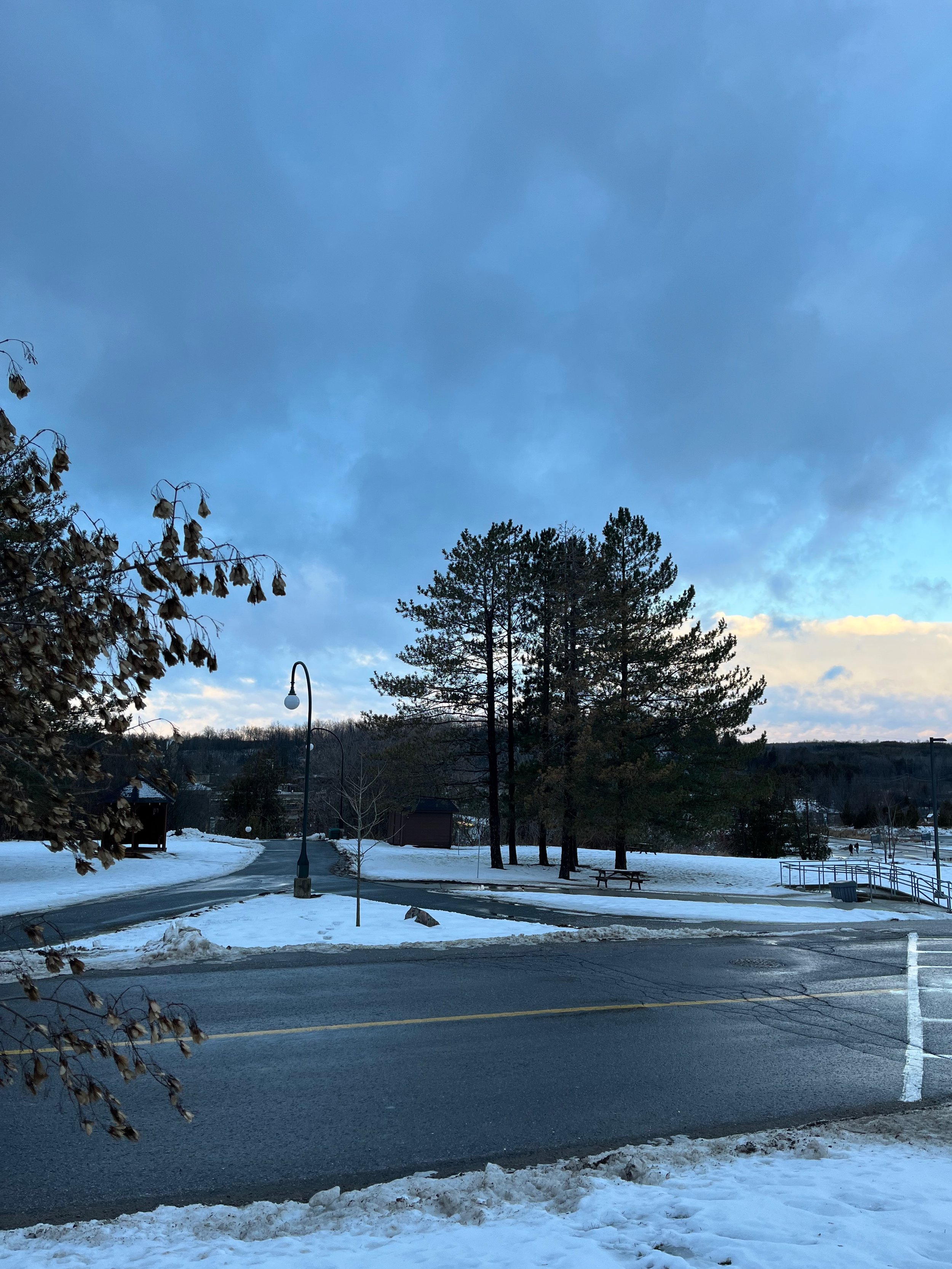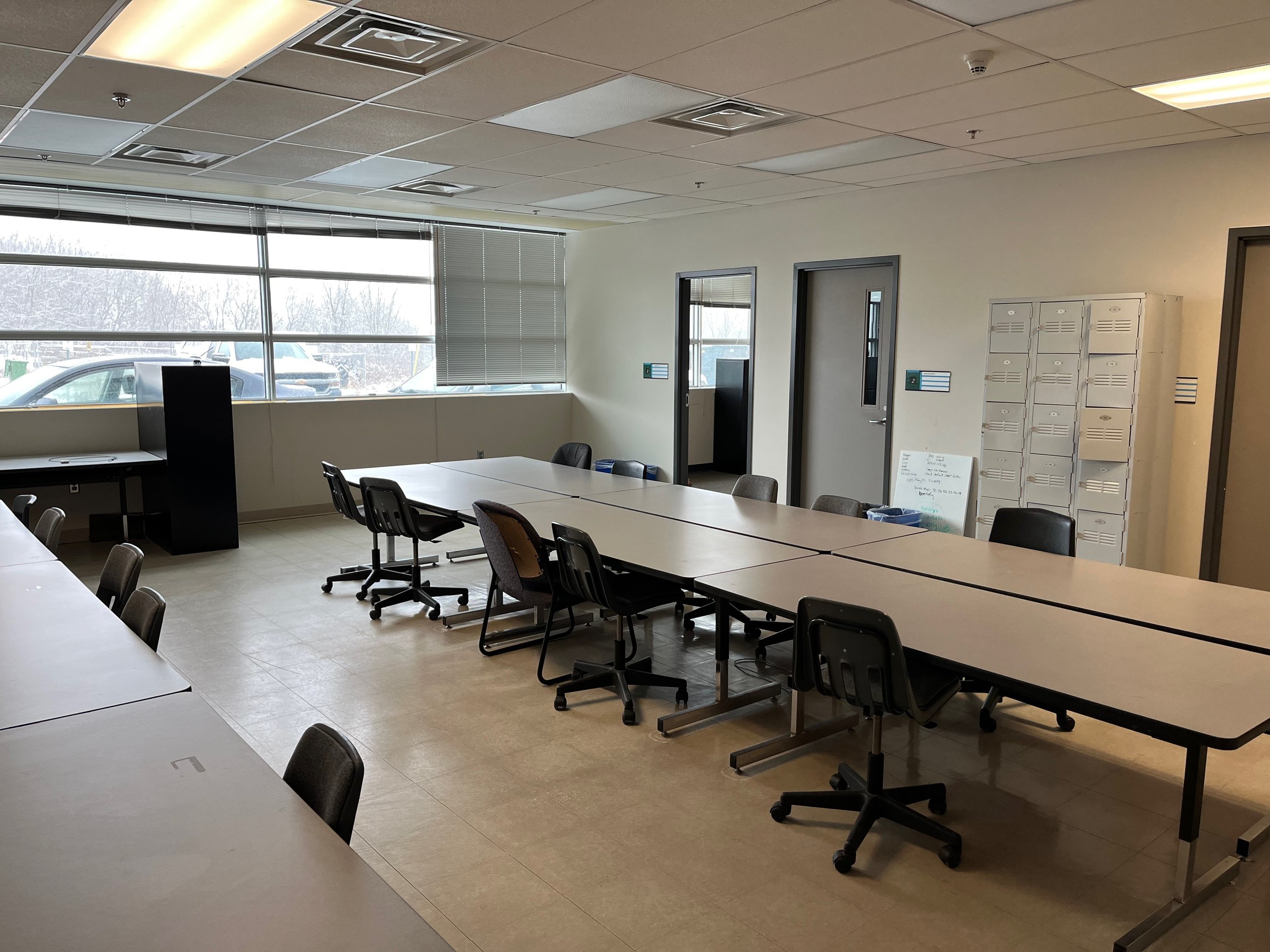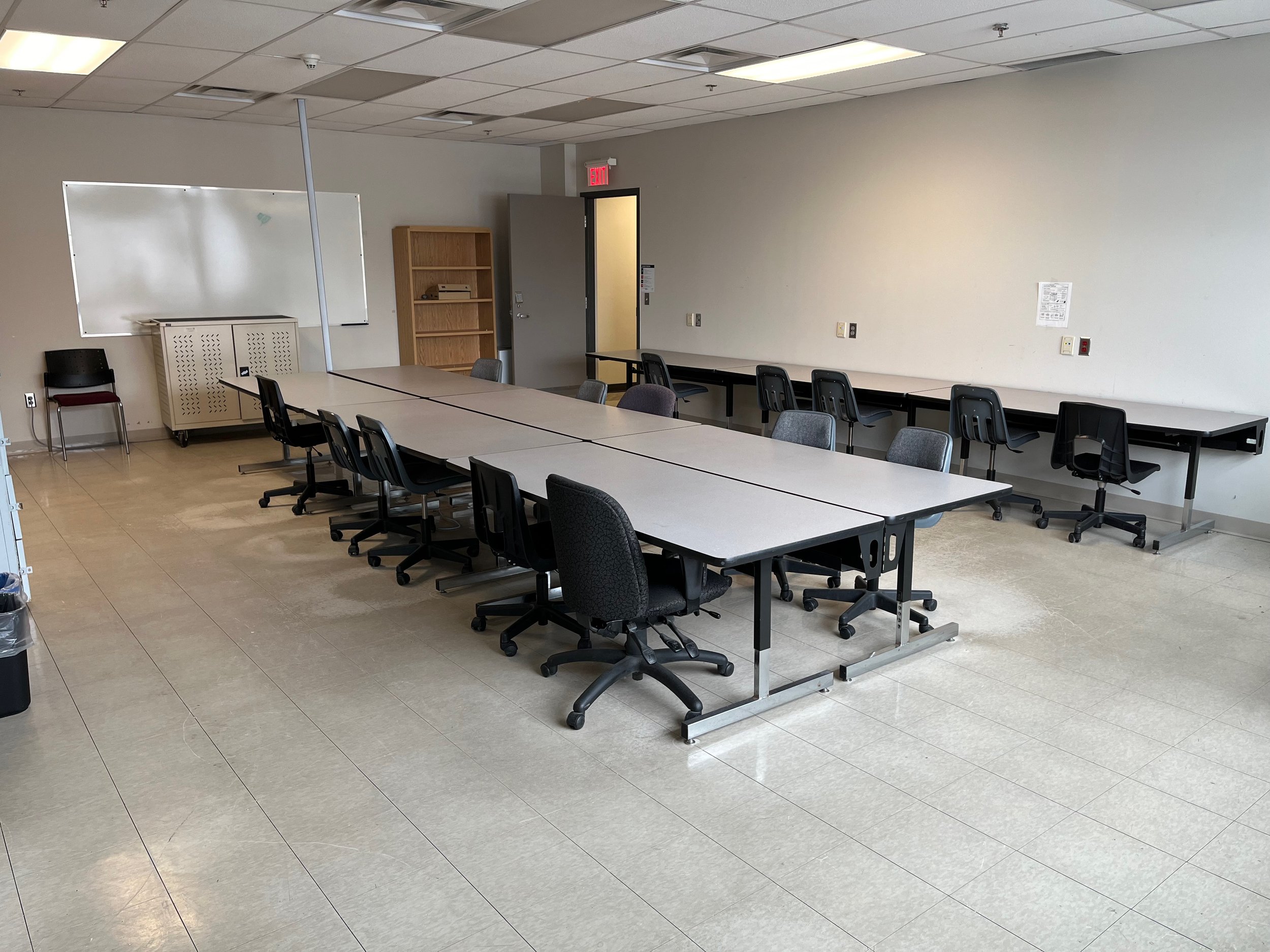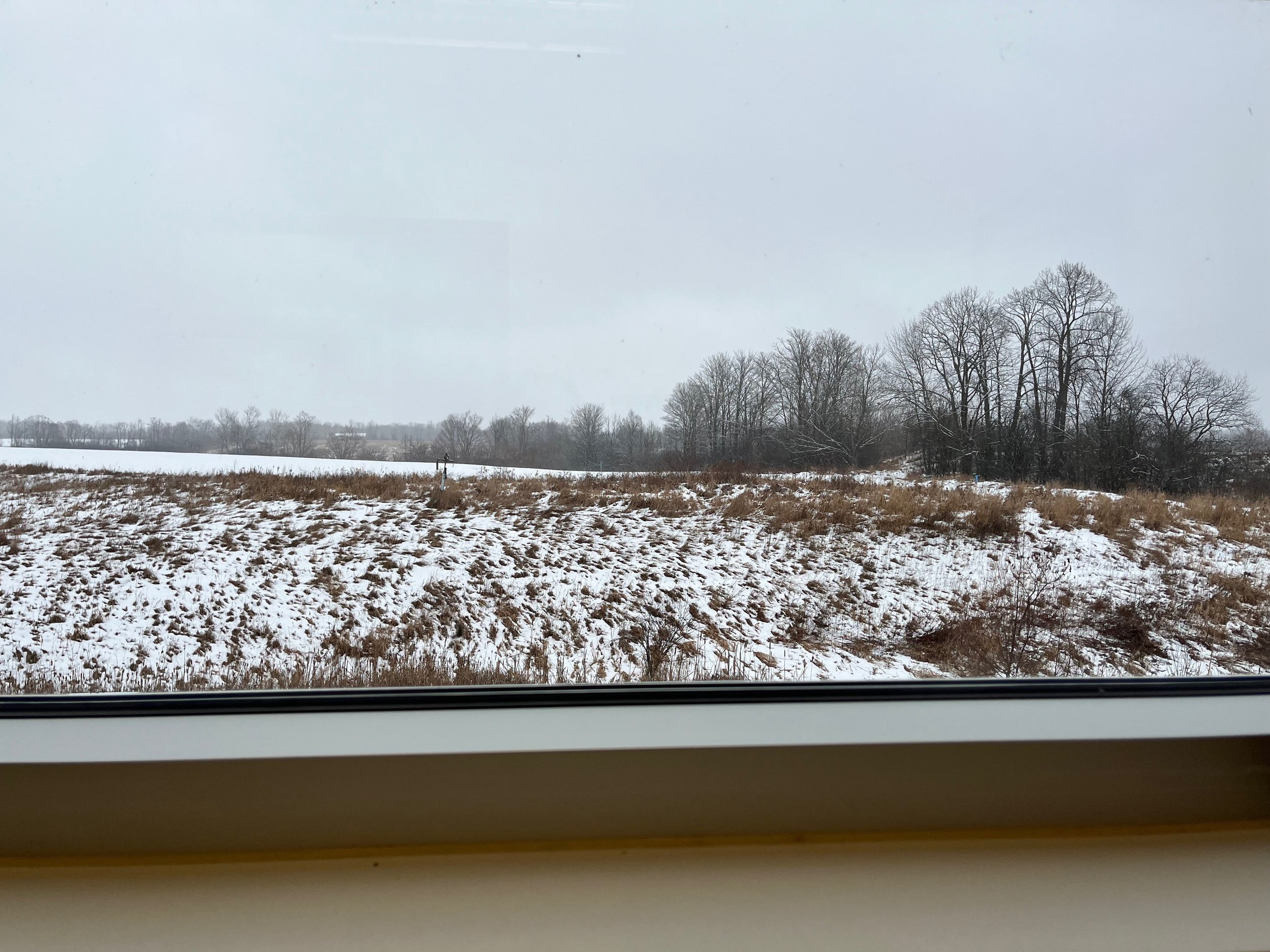We have arrived!
We are busy settling into our new spaces at Trent University. My office is starting to feel more familiar (and I really can’t argue with the huge window, natural light, and views that are not the rooftop technical ventilation system like at OVC). I will miss the sound of the horses downstairs.
I am working to get our lab space set up. It’s a great space with large windows, a private postdoc office, and lots of space for storing our equipment and also for setting up our computer hardware to ensure that everyone in the team has dedicated, protected workspace with computer monitors and docking stations (to make coding much less painful).
We can also hold our lab meetings in our new space without having to book a room. These are some photos from today. It needs some attention but the “bones” are amazing and we will get it into shape this winter.










